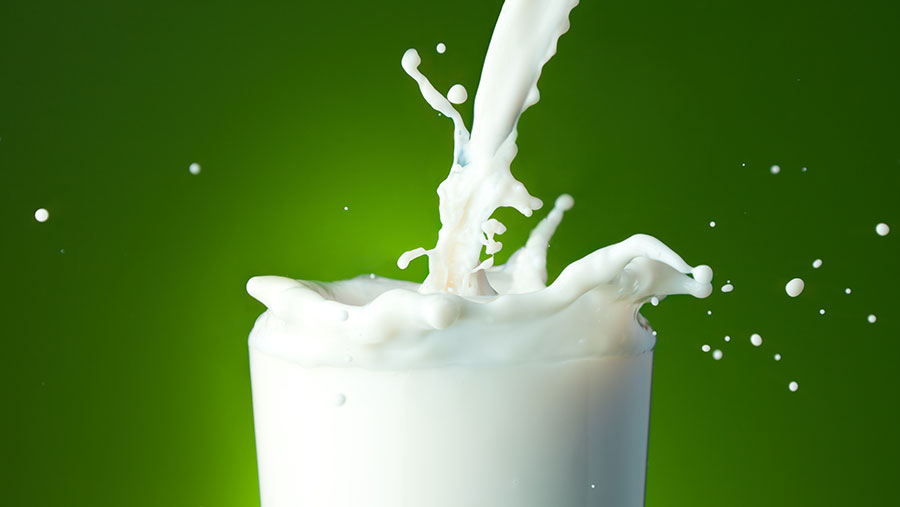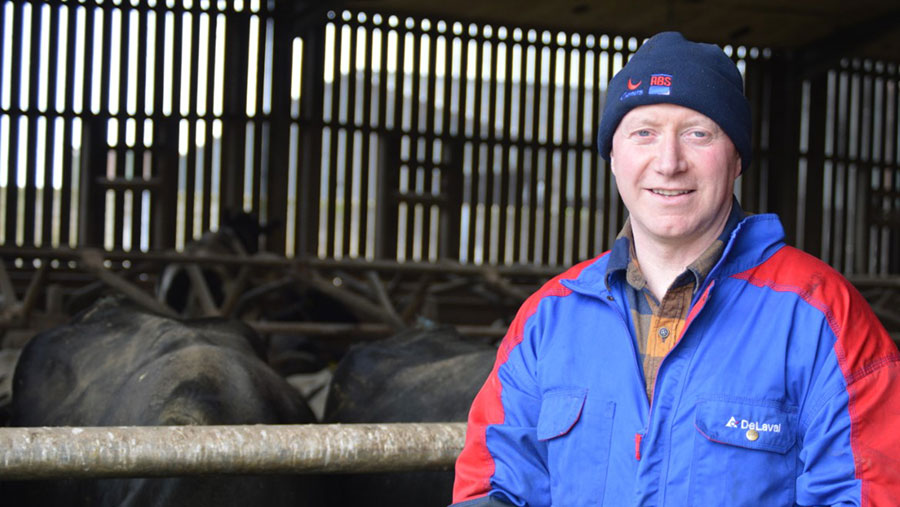World Milk Day celebrates dairy farmers and benefits of milk
 © Sergey Novikov/Adobe Stock
© Sergey Novikov/Adobe Stock Milk lovers across the UK are being encouraged to raise a glass of the white stuff and celebrate our brilliant dairy producers on World Milk Day.
This year’s event, on Tuesday 1 June, marks the 20th anniversary of the annual global celebration of the dairy sector.
The theme will focus on sustainability in the dairy sector with messages around the environment, nutrition and socio-economics.
See also: Real-time data to help dairy farmers assess heat stress risk
Established by the UN Food and Agriculture Organisation (FAO) in 2001 to recognise the importance of milk as a global food, every year since has seen the many benefits of milk and dairy products actively promoted around the world, including how dairy supports the livelihoods of one billion people.
Farmers are being urged to post videos on Twitter, Facebook and Instagram – using the hashtags #WorldMilkDay and #EnjoyDairy – showing how they are embracing technology to help create a low-carbon future for dairy.
This includes highlighting sustainability practices in the dairy sector and explaining how they care responsibly for their communities, land and animals.
Three health facts about milk and dairy products
- Milk is an important source of healthy nutrients, including calcium, magnesium, zinc, phosphorus, iodine, iron, potassium, folates, vitamin A, vitamin D, riboflavin, vitamin B12, protein and fat
- Drinking milk is essential to reduce hunger and malnutrition, particularly among the most vulnerable such as pregnant women and children
- Milk is especially important to help build and maintain strong bones
The Farmers’ Union of Wales (FUW) is asking everyone to raise a glass of milk to celebrate the many benefits of consuming milk and dairy in our lives – nutritionally, economically and environmentally.
Speaking from his Pembrokeshire dairy farm, FUW vice-president Dai Miles said: “Our dairy farmers comply with some of the highest regulations on animal health and welfare, as well as environmental standards. Consumers can rest assured that milk from Wales has been produced sustainably and with the environment in mind.
“As dairy farmers we rely on our cows being healthy and the ground they graze to be healthy too. That is reflected in an outstanding, trustworthy product that keeps us healthy and the rural economy flourishing.”
Covid difficulties
The coronavirus pandemic hit dairy farmers harder than anticipated and many were forced to dispose of thousands of litres of unwanted milk amid supply chain disruption and the closure of pubs, restaurants, and cafes.
It’s coming!
How will you celebrate #WorldMilkDay on Tuesday 1 June? If toasting World Milk Day on social media, tag NFU Scotland into your posts for us to share and look out for a blog from Milk Committee chair @galdenoch next week celebrating the White stuff. pic.twitter.com/8NsmGduX7y— NFU Scotland (@NFUStweets) May 28, 2021
NFU Scotland’s milk committee chairman Gary Mitchell said “green shoots of optimism” are showing in the sector, after many milk buyers recently announced price increases for the upcoming months.
But Mr Mitchell, who runs a dairy farm near Stranraer, said although the UK average farmgate milk price for April 2021 was 29.15p/litre, the gap between the lowest- and highest-paid dairy farmers is now “very significant” and shows no signs of narrowing.

Gary Mitchell © NFU Scotland
“In Scotland, there are now 843 dairy herds – nearly 7,000 less than 50 years ago. If we all want to be able to celebrate World Milk Day in the future, these figures and statistics will need to change,” he added.
Consumer support is key, recent consumption figures for milk and dairy products are encouraging and, according to Mr Mitchell, availability of milk and dairy products in nurseries and schools will help secure the consumers of the future.
How great is milk ?? A 200ml glass of milk is full of goodness. How do you like to enjoy yours? #enjoydairy #worldmilkday pic.twitter.com/Z7Tl6vkkxt
— AHDB Dairy (@AHDB_Dairy) May 29, 2021
Dairy Roadmap rapidly evolving to meet sustainability challenge
The Dairy Roadmap is accelerating efforts to support the dairy sector in setting a robust and ambitious strategy on the environment and climate change, helping to secure the long-term future for nutritious and sustainable UK dairy produce.
This work comes in anticipation of both the UN Food System Summit and COP26, events that could have a dramatic effect on the dairy sector nationally and around the world.
The Dairy Roadmap steering group, led by the AHDB, Dairy UK and the National Farmers’ Union, is working collaboratively with the wider dairy sector to develop plans and work programmes that demonstrate the environmental credentials of the dairy sector to key policymakers.
Judith Bryans, chief executive of Dairy UK, said: “We want to put the Dairy Roadmap at the heart of the dairy sector, leading the way and, crucially, demonstrating that dairy is part of a sustainable diet. The roadmap has been in place for more than a decade and was way ahead of its time in challenging the dairy sector to improve our environmental credentials; now the focus is shifting.”
